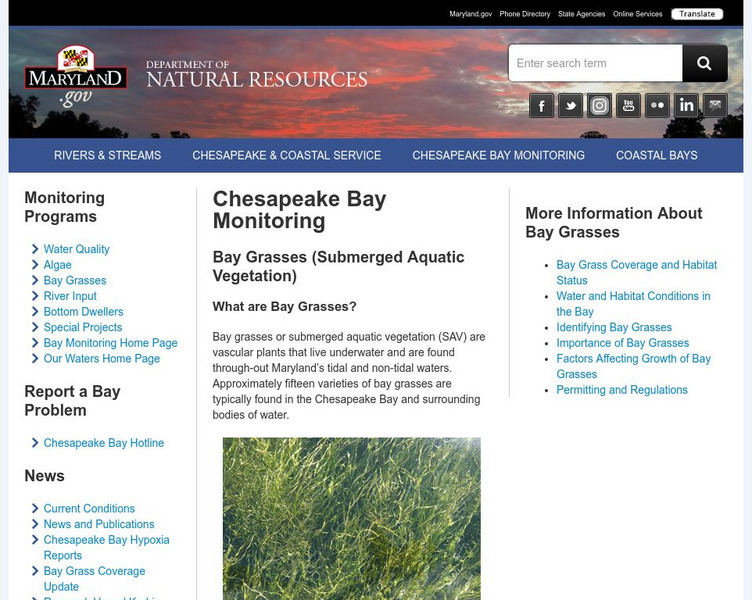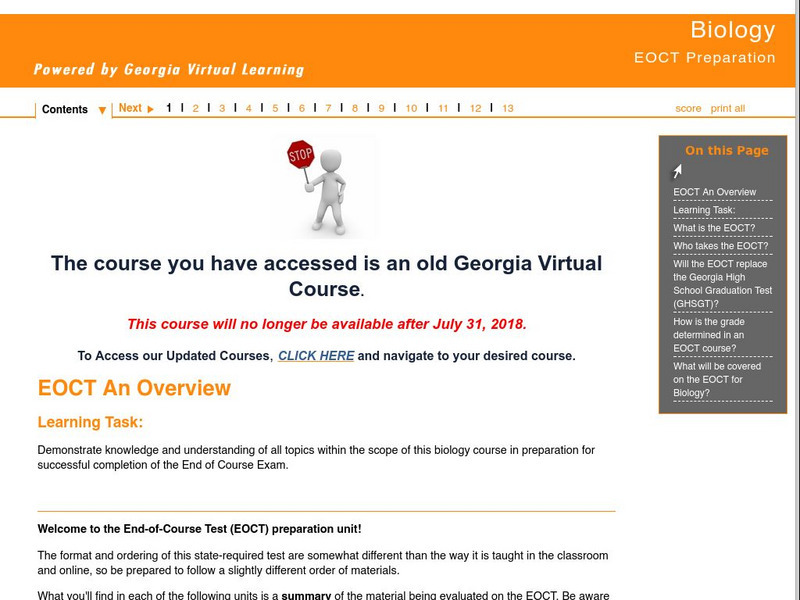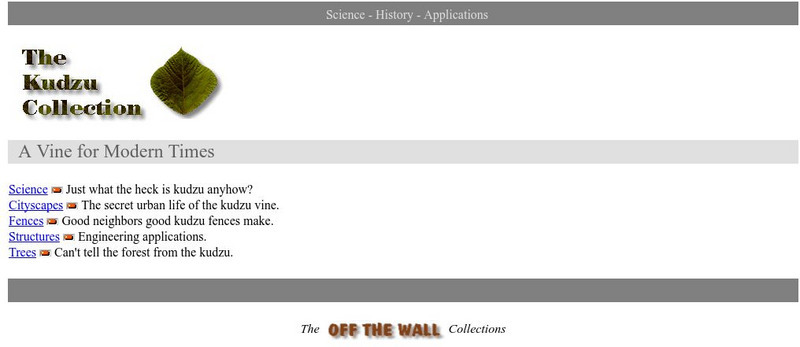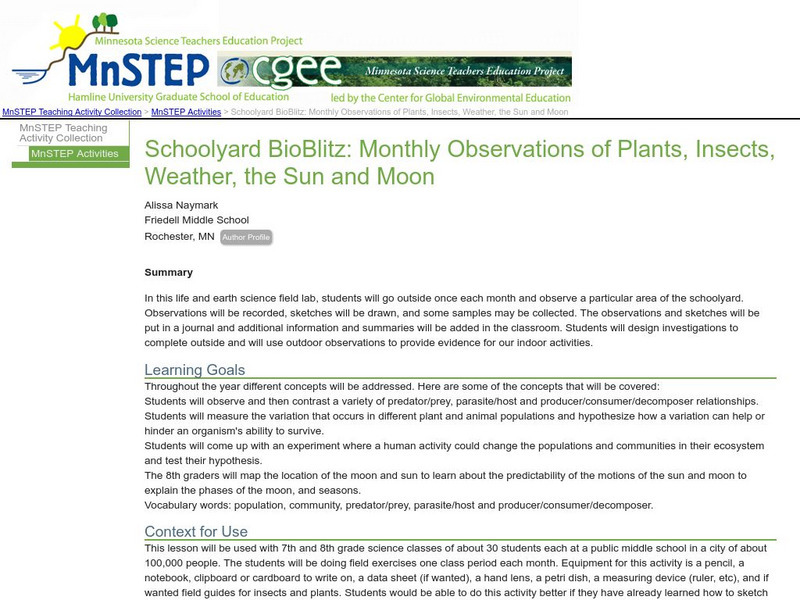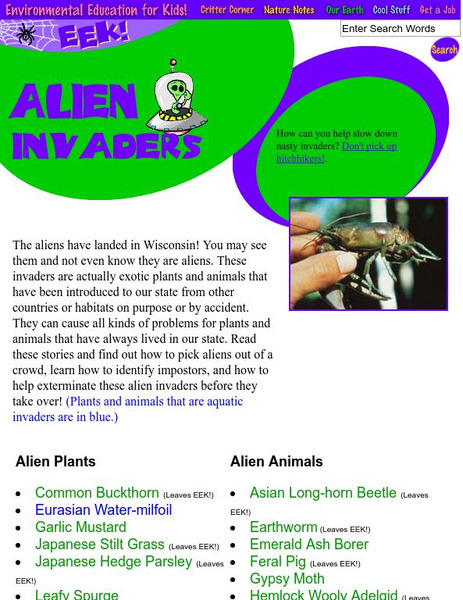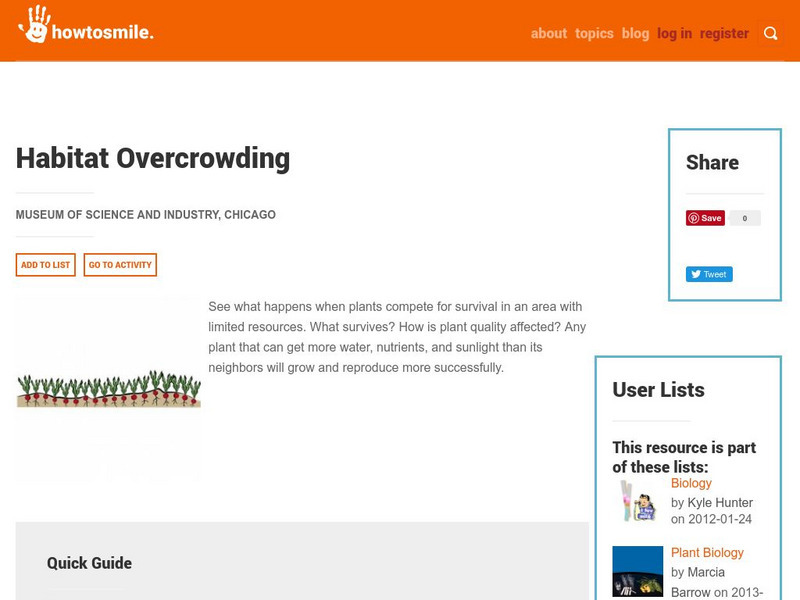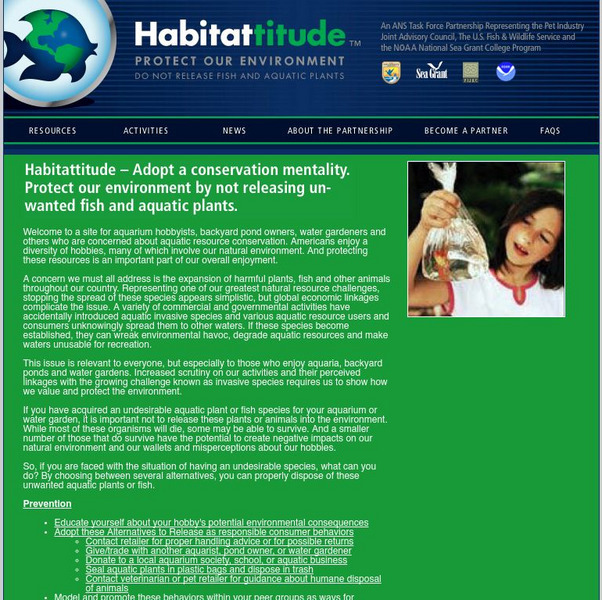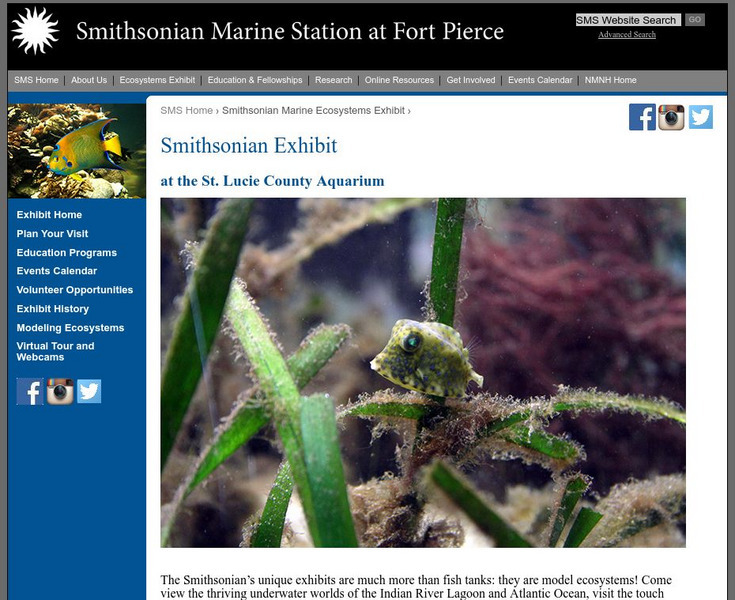Hi, what do you want to do?
University of California
Ucmp: Plantae
At this resource learners can take a look at the plant kingdom with a detailed examination of fossil records, life history and ecology, systematics, and morphology.
Other
Maryland Dnr: Chesapeake Bay Monitoring: Bay Grasses
This resource provides information about the marine grasses found in the Chesapeake Bay. Click on adjacent links to learn about their habitat, how to identify them, and why they are important.
Nature Research
Nature Education: Energy Economics in Ecosystems
This article discusses how plants and microorganisms, until recently, have mostly controlled how much carbon dioxide is released into an ecosystem, and explains how this process works. Humans' burning of fossil fuels has upset the...
Other
Missouri Conservationist Online: Missouri Cave Life
Excellent article describing a trip inside a cave. The article discusses the cave habitat and changes that occur as you go deeper into the cave. Includes interesting photographs.
University of Florida
South Florida Aquatic Environments: Florida Keys: About the Keys
The Florida Museum of Natural History offers an excellent review of the reefs, mangrove and seagrass habitats of the Florida Keys. Spend some time learning about this unique location.
Encyclopedia of Earth
Encyclopedia of Earth: Microbiology: Virus
Article explaining what viruses are, their evolution, taxonomy, morphology, and replication. Also covers mechanisms by which viruses cause disease, how they can impact on plants, and the potential and real benefits we get from...
University of Guelph
Introduction to Invertebrate Biodiversity: Fungi
Find out more about fungi when you check out this comprehensive site. This resource provides an introduction and information on morphology, reproduction and the importance of fungi. Don't miss out on this fascinating source.
Georgia Department of Education
Ga Virtual Learning: Biology: Eoct Preparation
Students participate in this comprehensive review to demonstrate knowledge and understanding of all topics within the scope of this biology course in preparation for successful completion of the Georgia End of Course Exam. It can also be...
Other
Earth's Birthday Project: Educating About the Earth
This site is loaded with science activities for elementary students. There are role plays, recipes, dances, writing exercises and craft ideas. You can also raise you own luna moths, praying mantids, ladybugs or carnivorous plants. Lots...
Other
Galapagos Islands: Wildlife Gallery
Great photos and descriptions of the wildlife in the Galapagos Islands. There are also links to information on the natural history, environment, and geology of these islands.
Discovery Education
Discovery Education: Lesson Plans Library K 5
This resource presents a lesson plan library which holds hundreds of lesson plans organized by grade level and subject area. Often rooted with an Internet research piece, each lesson plan contains specific objectives, procedures,...
PBS
Pbs Learning Media: Nature Cat: Story Exploration Packet
As you watch Nature Cat, use these tools to guide discussions and learning activities. Includes printables on story elements, alternate endings, vocabulary words, character traits, an episode map, and a Venn diagram.
ibiblio
Ibiblio: The Kudzu Collection (Photographs)
A fascinating Ibiblio.org collection of Kudzu photos in a variety of southern habitats. There is a short report on the history and botany of this vine.
Environmental Education for Kids
Eek!: Evergreens
Site chronicles Wisconsin's Evergreen and Conifer trees. There are descriptions of the various tree types. Additionally, site details the uses of these trees in nature. Ideal for grades 4-8.
Other
Tijuana Estuary Visitor Center
This site from the Tijuana Estuary Visitor Center has information on the visitor center and the Tijuana Estuary.
CK-12 Foundation
Ck 12: Fifth Grade Science: Life Science: The Flow of Energy in an Ecosystem
A module that explains what an ecosystem is and how energy and matter move through them. Students will look at the different roles of plants and animals and at ecological relationships in food chains and food webs.
Science Education Resource Center at Carleton College
Serc: Mn Step: Schoolyard Bio Blitz
For this activity, students visit a small section of the schoolyard and record observations in a scientific journal. They will observe different things as the school year progresses, including ecological relationships, human impact on...
Environmental Education for Kids
Eek!: Alien Invaders
The aliens have landed in Wisconsin! You may see them and not even know they are aliens. These invaders are actually exotic plants and animals that have been introduced to our state from other countries or habitats on purpose or by...
E-learning for Kids
E Learning for Kids: Science: South Africa: How Do Organisms Get Their Energy?
Join Ellen on her trip to the Kaap De Goede Hoop in South Africa, and learn more about plants, animals, and energy.
PBS
Nova: Tour Kilimanjaro
Experience six different ecological zones as you climb Mt. Kilimanjaro. Pictures of plants living in each of the zones are also part of this virtual tour of the mountain.
Other
National Science Digital Library: Smile: Habitat Overcrowding
Experiment with crowd control in a garden. Students will test what happens to radish plants observing who survives, who gets the most food, water and sunlight.
Environmental Education for Kids
Eek!: Community Action & Citizen Science: Biomonitoring
Biomonitoring is the term scientists use to describe the use of plants, animals, or entire ecosystems to tell if our environment is polluted. Biomonitoring has been used by biologists and scientists to give us information about our...
Other
Aquatic Nuisance Species Task Force: Habitattitude
Dedicated to aquatic resource conservation, this task force addresses the expansion of harmful plants, fish, and other animals and invasive species
Smithsonian Institution
Smithsonian Marine Ecosystems Exhibit
Take an online tour of the Smithsonian's "Exploring Marine Ecosystems" exhibit. Learn about coral reefs and look behind the scenes as scientists maintain the model ecosystems.






